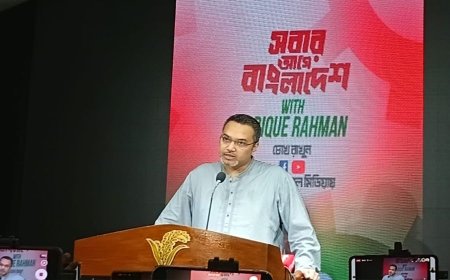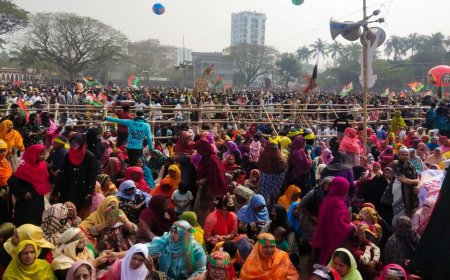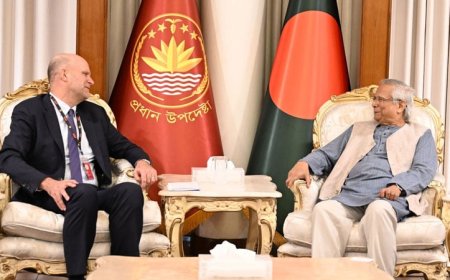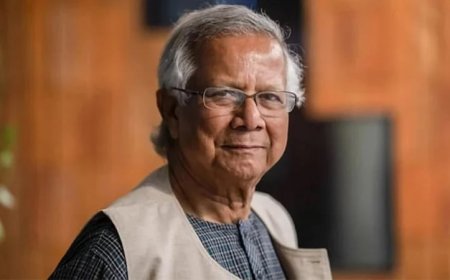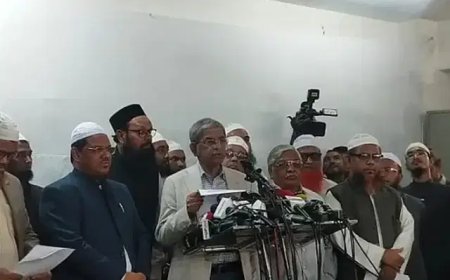Though the revolution has ended, protests in Bangladesh are more widespread than ever
Though the revolution has ended, protests in Bangladesh are more widespread than ever
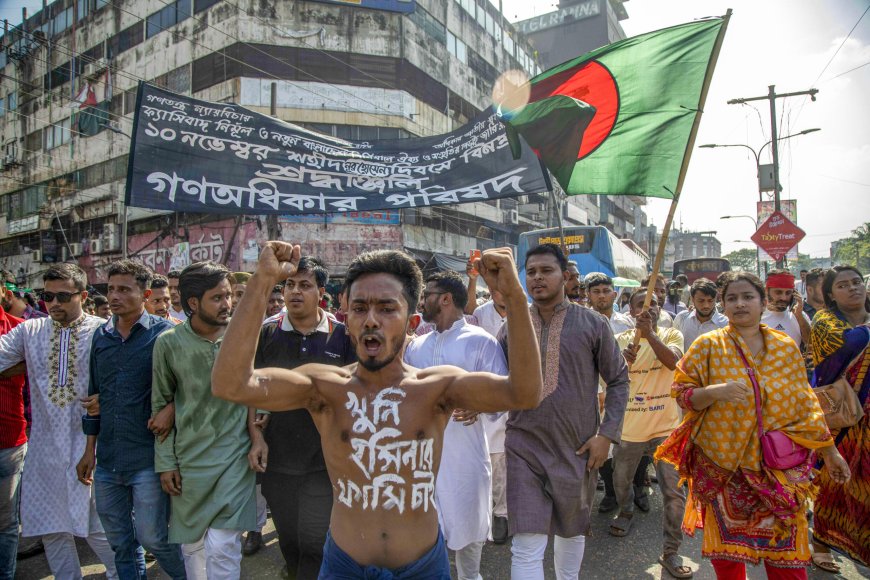
The solitary protest of Bangladeshi hunger striker Mahbubul Haque Shipon is hard to notice amid six other demonstrations happening simultaneously on the same busy street.
Shipon's country is emerging from a summer of unrest after student protests triggered a revolution that led to the ousting of autocratic Prime Minister Sheikh Hasina in August. Hasina's government had imposed strict limitations on public gatherings until it could no longer suppress growing anger over human rights abuses and increasing inequality after 15 years in power.
While many are hopeful that Hasina's fall signals a brighter future, the end of those restrictions has sparked even more protests in Dhaka since her removal—surpassing the number of demonstrations during the uprising.
"I am here for the nation's sake and for a great cause," Shipon told AFP four days into his hunger strike, where he had set up camp on a mattress on the sidewalk. The 47-year-old is demanding the resignation of Bangladesh's president, who remains in office despite being appointed by Hasina, and the repeal of the constitution he believes has contributed to the country’s past struggles. Despite his resolve not to eat until his demands are met, his voice was drowned out by the noise of numerous other protests around him.
Nearby, employees of the government land office were chanting for higher pay and benefits, while another lone protester called for the protection of Sufi shrines. Further down, a group formed a human chain to draw attention to the case of a university official who had received anonymous death threats. Another group gathered to condemn a recent attack on a nearby mosque.
Non-stop protests near the Secretariat building—the center of Bangladesh's government—have been met with enthusiastic support from street vendors. "Since the protests started, demand has skyrocketed," said Arup Sarkar, who sells various sizes of Bangladesh flags to protesters.
However, police are less enthusiastic about the growing number of protests across Dhaka, which has a population of over 21 million. Many protests are held on the city's already gridlocked arterial roads, causing significant disruptions. For example, garment workers protesting unpaid wages held sit-ins on highways that paralyzed transport into the city's industrial zones. Simultaneously, students blocked the road outside the Secretariat for hours.
The exact number of protests in Dhaka is hard to determine, as many occur without prior police approval. "Some follow the rules, while many don't, so we do not really know the actual number of demonstrations," said police officer Muhammad Talebur Rahman. "We encourage people to speak up, but at the same time, we ask that they avoid inconveniencing Dhaka's residents."
Since taking office, the interim government led by Nobel Peace Prize laureate Muhammad Yunus has mostly tolerated protests. However, it has cracked down on demonstrations by Hasina's Awami League party, fearing the group is trying to regroup after the arrest of its top leaders. When the Awami League attempted to stage a rally this month, police and student protesters swiftly intervened to disrupt the event.
"The Awami League, in its current form, is a fascist party," Yunus' press secretary, Shafiqul Alam, told AFP. "This fascist party will not be allowed to hold protest rallies in Bangladesh."
There are also signs that the government is growing more concerned about the disruption caused by the constant protests. Last month, it urged citizens to stop holding rallies that block traffic and instead move them to parks, although the directive has been largely ignored. The administration also banned protests outside Yunus' official residence weeks after he assumed power, frustrated by the interruptions to government work.
Some protests have even sparked fears of violence. Islamist groups recently threatened to besiege the offices of two newspapers for allegedly insulting their faith, prompting the deployment of soldiers for protection. Earlier this month, a crowd tried to storm Dhaka's most prestigious theatre to prevent a play from being staged, after a member of the production posted a Facebook comment criticizing the protesters who ousted Hasina.
"Freedom of speech and assembly are fundamental rights," said Abu Ahmed Faizul Kabir of the legal rights group Ain O Salish Kendra. "But they should not infringe upon the rights of others."
What's Your Reaction?







